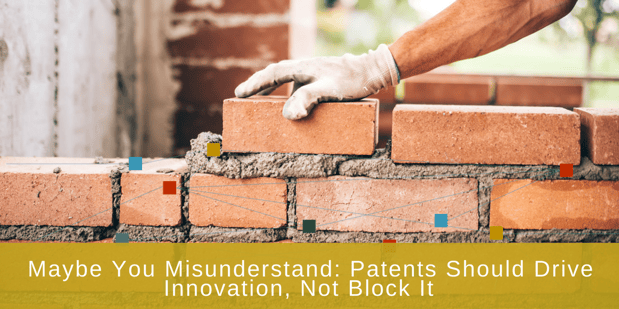
Once upon a time, the US patent system was created to share advances in technology so that others might learn from what’s available and improve upon it. The protection the patent system offered to the original inventor was meant to serve as an incentive to share that technology with the rest of the world.
Today, we see companies pitted against each other every day in the court systems as they struggle to determine who owns what and who should collect royalties as a result of the latest product development. Qualcomm against Apple. Tessera against Samsung. Everybody in the world against that one guy who patented podcasting.
Where is that innovative spirit of old? Why have these tech companies twisted the true purpose of the US patent system into a sort of Kindergarten standoff over the coolest toy in the toy box?
Deliberate Misunderstanding of Patent System
Innovation comes with a lot of questions. Of course, there are the usual:
- Does this product or technology actually work?
- Is there a market for this new product/technology?
- Will this product/technology change users’ lives?
- Can we take this product to commercialization and see a return on our investment?
Unfortunately, with the current attitude surrounding patents, we also need to worry about another big question:
- Can we get this product to market before our competitors use patent laws to stop us?
The purpose of a patent is several-fold, with the two most important of those being to protect the inventor from losing control of his innovation, and to empower them to share their innovations so that others can build on it.
It’s that last part we’re all having a little trouble with.
True Innovative Spirit
We’ve talked a few times about Elon Musk and Tesla. The decision to open their patents for use by anyone who intends to use them in good faith. In other words, they don’t want their innovative spirit to come back and bite them, should someone decide to patent something similar and then later sue for infringement.
What’s the real reason behind Musk’s decision to open up all Tesla patents? To continue driving innovation, of course. If no one can build upon the technology that Tesla has developed, how can we continue to move forward?
Imagine for a moment that current attitudes toward the patent system had been in place when the telegraph was patented—or even the first vehicle, for that matter. Where would we be today? Probably still using horses to travel and communicate across long distances. Instead, inventors used the technology that was already available to them to build the next best thing. And those who saw their innovation improved upon celebrated, and probably bought the product that resulted from that improvement.
As the technology surrounding a particular innovation improved, so did the size of the market. And as the market increased, so did the size of the original inventor’s bank account. Sure, he (or she) could have held tightly to their innovation, only to watch it slowly die—but they would have had the ultimate control, right? Is it worth losing out on bigger and better things to maintain that control?
Elon Musk doesn’t think so, and neither do we.
Studying the Effects of the Innovative Spirit
Now, we’re not saying that every tech company should open their patents to the rest of the world for use, though we certainly applaud Tesla for their courage. There is always someone out there who wants to ruin everyone’s fun, and that’s what the patent system is designed to protect you from.
However, we’ve watched the electric car marketgrow by leaps and bounds since Tesla made their patents available. We’ve seen other automakers improve upon previous products again and again. As the number of electric cars available grows, so does the revenue for those cars. And at the center of that market is Tesla, still crowned the king of the electric car, even with other companies using their technology.
With the proper innovative spirit, this is how technology can grow. Not by clutching your toy to your chest and screaming, “Mine!”
We want to help you continue to foster innovation within your organization, but we know there will be brick walls along the way. We can help you through the process of conceiving, developing, and delivering your next product to the market while avoiding the normal pitfalls of innovation. To find out how, give us a call.
This article originally appeared on Huffington Post on October 13, 2017.



